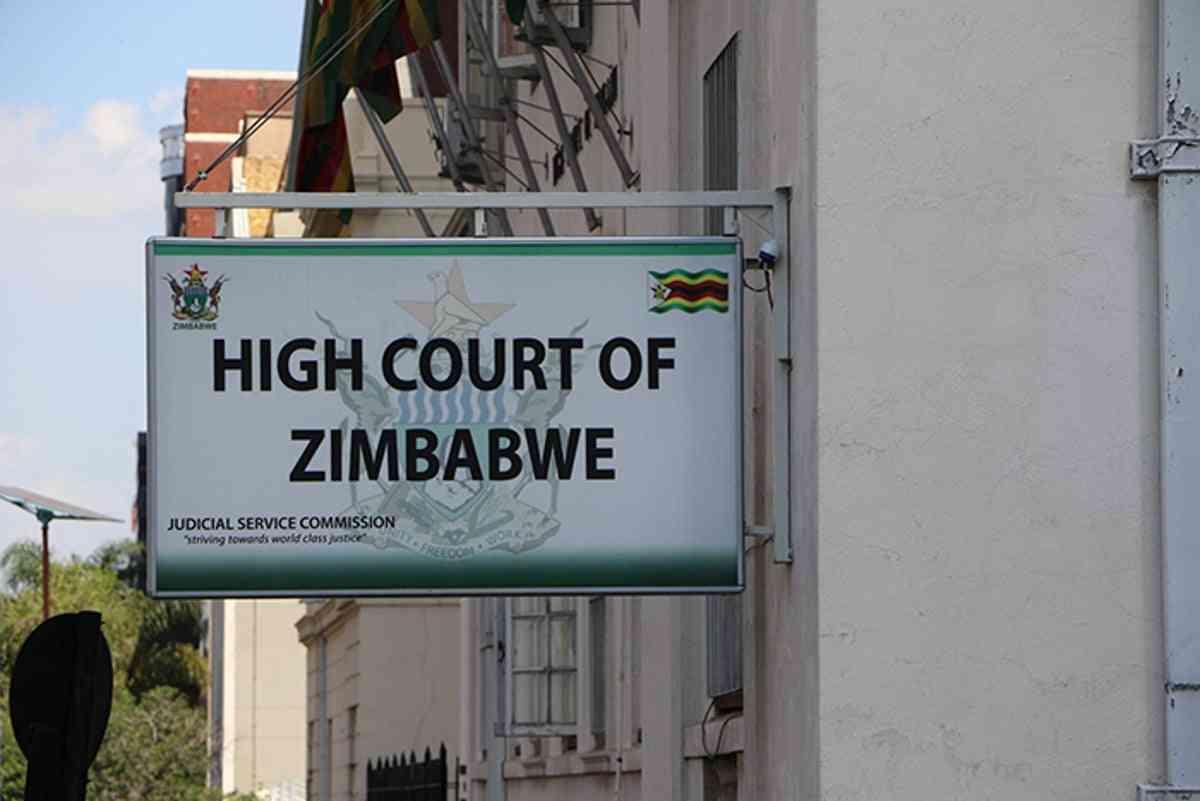Africa-Press – Zimbabwe. THE High Court has dismissed an application seeking the declaration of amendments to the Criminal Law (Codification and Reform) Act, infamously known as the Patriot Act, unconstitutional in another blow to freedom of expression in Zimbabwe.
President Emmerson Mnangagwa signed into law the Criminal Law (Codification and Reform) Amendment Bill, which deals with wilfully injuring the sovereignty and national interest of Zimbabwe, in 2023.
It carries punitive sentences, including death, for acts the government deems unpatriotic.
United States-based opposition activist Freeman Chari, however, filed a High Court application challenging the constitutionality of the law.
He cited Justice, Legal and Parliamentary Affairs minister Ziyambi Ziyambi and Attorney-General Virginia Mabhiza as respondents in his application.
Chari, who took offence with section 22A(2)(b) of the Act, argued that it is unconstitutionally vague and, therefore, void.
He argued that the words subverting, upsetting, overthrowing or overturning a constitutional elected government are not defined with sufficient clarity, rendering the whole Act vague.
Chari said the law violated his political right guaranteed in section 67 to overthrow a constitutional government through constitutional means.
He also argued that some provisions of the Act violate his right to freedom of expression and freedom of the media and political rights as enshrined in sections 61 and 67 of the Constitution.
However, the respondents opposed the application saying there was nothing vague about the law.
They submitted that section 22A(22)(b) is very clear and precise and does not in any way violate political rights, the right to freedom of expression and that of the media.
They submitted that the criminalised conduct in section 22A(2)(b) speaks to active disloyalty to a constitutionally established government with a view to removing it through unconstitutional means. In analysing the matter, High Court judge Justice Regis Dembure said laws should be expressed in clear and precise terms, leaving no room for subjective interpretation.
“A law may not be so widely expressed that its boundaries are a matter of conjecture nor may it be so vague that the people affected by it must guess at its meaning. If it does, it will fail to meet the test of validity,” Justice Dembure said.
“A subject must be able to foresee to a reasonable degree the consequences which his chosen course of conduct might entail.
“Accordingly, statutes creating crimes must define those offences with clarity and precision, ensuring citizens understand what conduct is prohibited and what is criminalised.”
Justice Dembure, however, said there was nothing vague about the Act.
“While the words ‘subverting’, ‘upsetting’, ‘overthrowing’, or ‘overturning’ are not defined, that per se does not render the section void for vagueness,” the judge ruled.
“The ordinary grammatical meaning of those words can easily be ascertained with sufficient clarity or precision to dispel any notion of vagueness as argued by the applicant.”
Justice Dembure said the criminalised conduct was proscribed with sufficient clarity to enable citizens to regulate their behaviour and act lawfully.
“The kind of behaviour that is criminalised under that provision goes beyond the normally acceptable and constitutional means of removing or changing a constitutional government,” the judge said.
“There is adequate demarcation of the area that constitutes criminal conduct, which renders the provisions clear and certain to meet the requirement of legality.
“The applicant has failed to discharge the onus to show that the provisions of s22A(2)(b) of the Act are unconstitutionally vague and violate the applicant’s fundamental rights or freedoms under sections 61 and 67 of the Constitution.”
For More News And Analysis About Zimbabwe Follow Africa-Press






